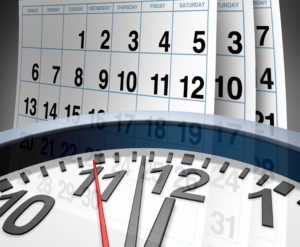Special to the Financial Independence Hub
2020 was a difficult year in markets and the economy. There remains a high level of uncertainty heading into the new year. Below we’re going to walk you through some time-tested practical steps on how to prepare for the coming year, in order to make sure you’re financially set for whatever may unfold.
1.) Assess your personal balance sheet
When planning your finances for the new year it is critically important to know and understand the strength of your current financial position. You can do this by running through the exercises below.
• Understand your financial obligations relative to your income:
Are you carrying high levels of debt relative to income? What is the composition of this debt: is it mostly in high-interest credit cards or a low fixed-rate mortgage? The 36% Rule states that your debt to income (DTI) should never surpass 36%. When your DTI rises above 36%, your personal balance sheet is fragile and you become more exposed to financial risk. In these difficult times of uncertainty, it’s important to keep your DTI low so as to maintain financial flexibility.
• Upcoming big-ticket expenses:
Do you plan to make any big purchases or financial outlays in the coming year? Perhaps you’re planning to buy a home and purchase a new car or pay the tuition for your child to attend their first year of college … These are big expenses that can stress the strongest of personal balance sheets if one doesn’t plan properly. That’s why it’s important to note these at the start of the year so you can start preparing for the expense.
- Nonessential spending:
Frequent dinners out and vacations at the beach are fun but if they come at the cost of putting a strain on your financial security, they can cause more stress than they’re worth. A good exercise for planning for the coming year is to look back at your expenses from the year before and see where you’re maybe spending a little more money than you’d like. Those $6 lattes every morning add up!
2.) Set your personal financial goals
To cite the oft-quoted baseball sage, Yogi Berra “If you don’t know where you’re going, you’ll end up someplace else.” Financial planning and goal setting are critically important to protecting your resources and securing the future you want. From a practical standpoint, this means doing a number of key things at the start of each year.
- Set a target retirement savings amount:
Retirement might be a ways off for you, or not. Regardless, it’s never too early or too late to start planning for it. The rule of thumb is that you should aim to stash 10%-15% of your pretax income into a retirement savings account each year. The earlier you can start doing this the better because that puts the power of compounding in your favor.
- Invest, invest, invest:
The best way to grow your wealth over time is to start investing early and often. This means putting a percentage of your income into low-cost stock and bond indices, on a consistent and regular basis.
- Take control of your debts:
Turning back to keeping your DTI below the key 36%, debt is a financial burden that has to be dealt with before it grows out of hand. This takes time and planning. Just like how the power of compounding works in your favor in investing, it works against you when you carry large amounts of debt if you’re just paying the minimum. Continue Reading…







